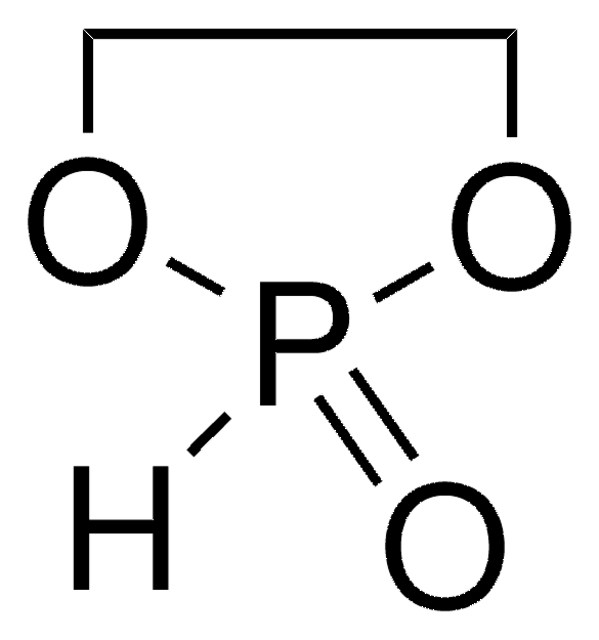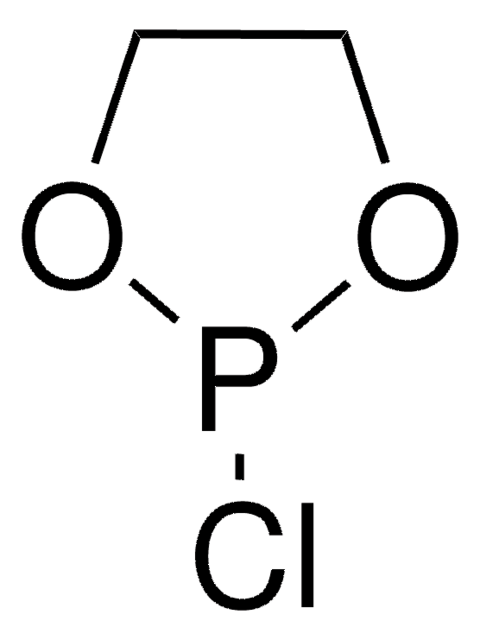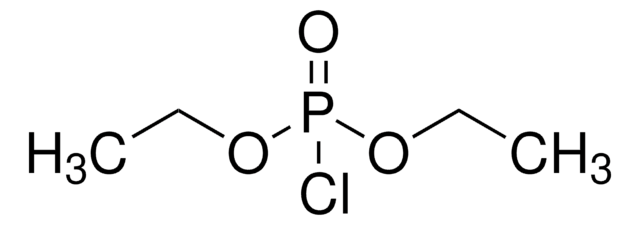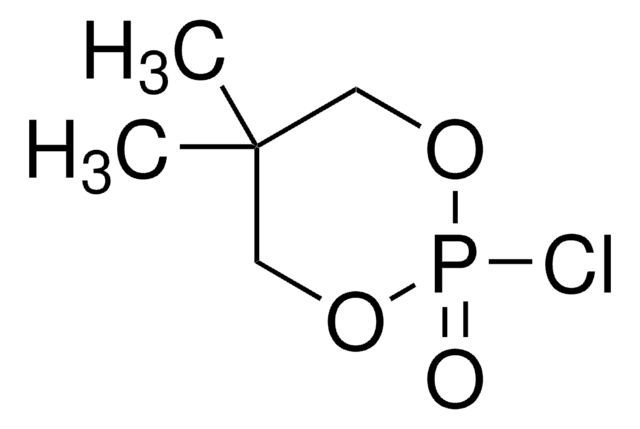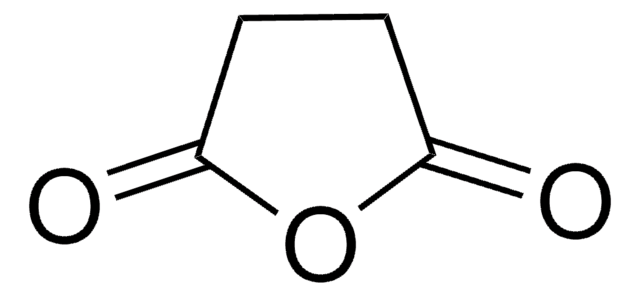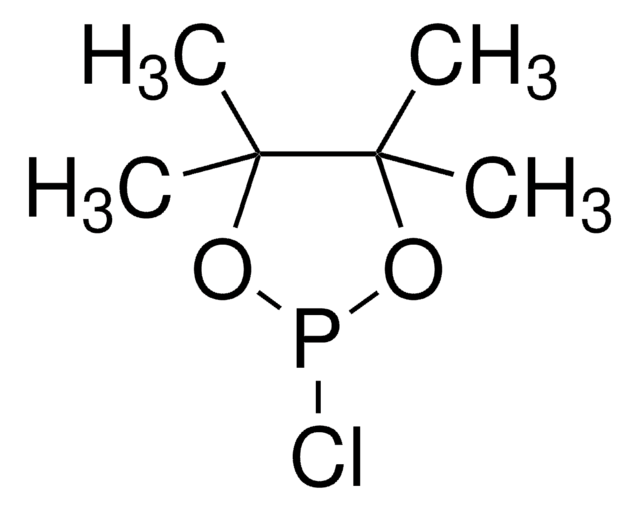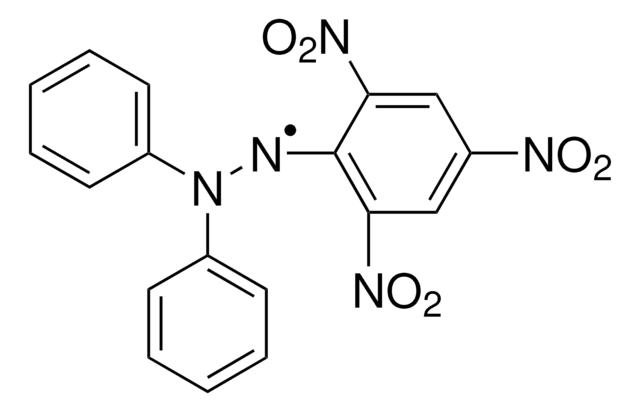377953
2-Chloro-1,3,2-dioxaphospholane 2-oxide
Synonym(s):
2-Chloro-2-oxo-1,3,2-dioxaphospholane, Ethylene glycol chlorophosphate
About This Item
Recommended Products
form
liquid
Quality Level
impurities
<10% 2-Chloro-1,3,2-dioxaphospholane
refractive index
n20/D 1.45 (lit.)
bp
89-91 °C/0.8 mmHg (lit.)
mp
12-14 °C (neat) (lit.)
density
1.55 g/mL at 25 °C (lit.)
storage temp.
−20°C
SMILES string
ClP1(=O)OCCO1
InChI
1S/C2H4ClO3P/c3-7(4)5-1-2-6-7/h1-2H2
InChI key
SBMUNILHNJLMBF-UHFFFAOYSA-N
Related Categories
General description
2-Chloro-1,3,2-dioxaphospholane 2-oxide is used in esterification reactions for cyclic phosphate synthesis, also reacts with phenyl grignard reagents.
Application
- 2-methacryloyloxyethylphosphorylcholine
- miltefosine (hexadecylphosphocholine, MT) analogs
- phosphoric acid 2-trimethylamino-ethyl ester undec-10-enyl ester
- uridine nucleolipid, (2′,3′-O-16-hentriacontanyliden-uridine-5′-phosphocholine, PUPC)
- adenosine nucleoamphiphile, (2′,3′-O-16-hentriacontanyliden-adenosine-5′-phosphocholine, PAPC)
- structurally related phospholipids which are either conformationally restricted or flexible
- phosphatidylcholines
- Synthesis of amino-functionalized hybrid hydrocarbon/fluorocarbon double-chain phospholipid
- Synthesis of UV-polymerizable lipids via Chabrier reaction
- Syntheses of block copolymers of poly(aliphatic ester) with clickable polyphosphoester
- Imprinting molecular recognition sites on multiwalled carbon nanotubes surface for electrochemical detection of insulin in real samples
- Synthesis of a zwitterionic silane
- Synthesis of a core-shell-corona micelle stabilized by reversible cross-linkage for intracellular drug delivery
signalword
Danger
hcodes
Hazard Classifications
Eye Dam. 1 - Skin Corr. 1B
supp_hazards
Storage Class
8A - Combustible corrosive hazardous materials
wgk_germany
WGK 3
flash_point_f
>235.4 °F - closed cup
flash_point_c
> 113 °C - closed cup
ppe
Faceshields, Gloves, Goggles, type ABEK (EN14387) respirator filter
Choose from one of the most recent versions:
Already Own This Product?
Find documentation for the products that you have recently purchased in the Document Library.
Our team of scientists has experience in all areas of research including Life Science, Material Science, Chemical Synthesis, Chromatography, Analytical and many others.
Contact Technical Service